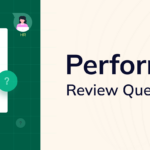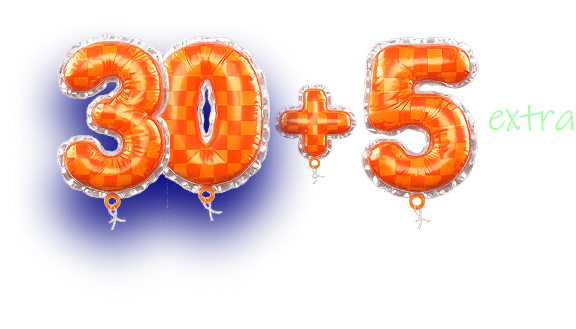When it comes to managing people in an organization, two distinct approaches have evolved over time: HRM vs Personnel Management. Both terms are often used interchangeably.
Do you wonder what the real difference is between HRM and personnel management?
Personnel management is mainly about basic administrative tasks like hiring, paying, teaching, and making sure everyone gets along. HRM, on the other hand, focuses on measuring the needs of the company and constantly reviewing and changing all systems to reach a single goal.
Even though a lot of people think that Human Resource Management is just a new name for personnel management, the area is more well-known in the business world. On the other hand, many experts think that staff management and human resource management are very different.
Today, we’ll briefly discuss human resource management and personnel management. This is so that you can integrate the right system into your business.
Comparison Chart: HRM vs Personnel Management
| Basis For Comparison | Personnel Management | Human Resource Management |
| Meaning | An aspect of management that is concerned with employees at work and their relationships within the company. | An essential branch of management that deals with making the optimum usage of organizational human resources to achieve organizational goals. |
| Objective | Managing people at work | Working for the growth & development of the workforce |
| Approach | Traditional | Modern |
| Treatment of manpower | Machines or Tools | Resource & Asset |
| Type of function | Routine function | Strategic function |
| Basis of Pay | Job Evaluation | Performance Evaluation |
| Management Role | Transactional | Transformational |
| Communication | Indirect | Direct |
| Labor Management | Collective Bargaining Contracts | Individual Contracts |
| Initiatives | Piecemeal | Integrated |
| Management Actions | Procedure | Business needs |
| Decision Making | Slow | Fast |
| Job Design | Division of Labor | Groups/Teams |
| Major Functions | Employee hiring, remuneration, training, and harmony. | Recruitment & staffing, Equal employment opportunity, HR development, Remuneration, Employee relations, Continuos growth, etc. |
What is Personnel Management – Let’s Explain It

Personnel management is an administrative function that focuses on hiring and developing employees to become more resourceful for the company. It defines the right personnel for the right organizational activity.
Furthermore, this is a traditional approach to managing employees. In some organizations, it is considered a sub-category of HR that only focuses on administration.
Personnel managers supervise the hiring process and professional development of employees within an organization. They are responsible for recruiting new talent, training new employees, and supporting them as necessary during their careers.
People managers are part of the HR team at many companies. However, most smaller companies hire their HR pros as individual managers to do all the administrative work.
Personnel Management Areas of Interest
PM concentrates on particular administrative HR categories. It includes planning, job analyses, paycheck distribution, performance appraisals, and benefit programs.
It also deals with recruitment, screening, new employee orientation, and training. Moreover, besides, personnel managers take care of employee remuneration, dispute resolution, and keeping employees’ data secured.
Importance of Personnel Management:
- Build a team of professionals
- Ensure smooth work interactions
- Minimize conflicts among dependents
- Optimize the onboarding experience
- Develop an effective employee retention strategy
Since the most valuable thing a company has is its employees. However, hiring the wrong people can destroy the structure of your business.
According to a study by SHRM, 72% of companies with effective personnel management practices report better employee retention compared to those without formal management structures.
The PM also makes sure that well-trained pros are hired. And gives the right conditions for growth.
Human Resource Management Explained

HRM is an organizational function that deals with the acquisition, development, motivation, and maintenance of human resources in a particular way. So, people can give their best to the company. The core objective is to build an employee-centric workplace through the systematic management of manpower.
It all starts with hiring, getting started, and training. By making workers go through performance reviews, managers can figure out how valuable they are. It helps you evaluate your workers better and set the pay scale right, so you don’t take advantage of them.
Additionally, this process manages the issues related to employees within a company. Such as compensation, growth, safety, benefits, etc. HRM is a complete package of employee management. This also refers to a systematic function of building team spirit and teamwork.
HRM is largely responsible for developing an interactive working environment. So, people can do their tasks with great satisfaction and reach the final goal within the accolated resources.
Human Resource Management Areas of Interest
HRM involves many different fields of study. It helps with strategic planning and making decisions, and it makes sure that all the parts of human resources work together. It also has to do with hiring people, training and developing them, and keeping the staff in good shape.
Also, HRM makes sure that all of the company’s processes, such as marketing, production, finance, legal, and others, work together.
Importance of Human Resource Management:
- Maintain better industrial relations
- Develop organizational commitments
- Help to cope with changing environment
- Work closely with employee welfare
- Estimate future demand and act accurately
So, now the key responsibility of the HR department is to improve the efficiency of the employees by prioritizing ergonomics. As the HR manager performs such important activities, he/she is very precious to your business enterprise.
Read more: Importance of Human Resource Management in Your Business.
Detailed Comparison Between Personnel Management and Human Resource Management

When we talk about the difference between HRM and Personnel Management, HRM is considered much broader in scope than personnel management.
Let’s look at the comparison between these two key management functions in brief detail below:
01. Nature of Function
HRM is about making sure that people in an organization are managed as well as possible so that they can all work together to meet the company’s goal. So, the main goal of HR is to give staff the tools they need to do their best work. On the other hand, project management is a part of general management.
Furthermore, the working process is traditional and routine. Therefore, it encourages every employee to give their fullest contributions to the purpose of the business.
02. Employee Treatment
HRM focuses on tasks that have to do with resources. So, it treats workers as resources or assets most of the time. People who work here are seen as economic, social, and mental guys.
It thinks that the money spent on workers turns into money. Inside the PM, workers are treated as the same way machines, equipment, and other parts are. Also, wages, bonuses, and other rewards are counted as part of the cost of work.
03. Reactive and Proactive Function
People who work in HRM are smart. So, they are always working to manage and create a workforce that works well together. HRM is proactive because it is made up of functions that are constantly checked and updated. It cares not only about how the company is doing right now but also about what it will need in the future.
By contrast, project management is reactive. It responds according to the demands of the organization. PM performs to ensure peaceful measure management relations in the present.
04. Significant Strategies

HRM emphasized flexible contracts. So, the admin can modify the rules and conditions depending on the business needs. Moreover, it works hard to inspire the employees for their continuous growth.
So, it helps a new employee become a good member of the team. PM is different from the case because it has rules, procedures, and contracts that must be followed. The relationship between managers and employees is based on these things. For example, union contracts and collective agreements.
05. Basic Principles
HRM is based on the principle that job satisfaction and good morale result in better performance. That’s why it supports its employees in every aspect. HR managers take good care of their employees’ mental health as well.
Great HR leaders, for example, changed the way the office works to deal with the situation after the pandemic. As they always want to protect the health of their team and the business as a whole. PM, on the other hand, is based on the idea that a happy worker is a busy worker.
06. Dependency Factor
PM is an independent function. It’s not integrated with organizational strategies and processes. In this system, the job role is allocated to an individual employee.
The HR department, on the other hand, tends to be an integral part of the overall company function. Here, the job roles are designated among teams so that everybody can work together towards a common goal.
Read more about- The Essential Role of A Human Resource Manager in Modern Businesses
07. Employee Management
PM thinks that an employee should work for the money he is paid. Employees don’t have the right to say what they think and be involved in making decisions. PM managers only check to see if the method works the way the law says it should. But they don’t pay much attention to how workers feel.
Rather than understanding the situation, they are more concerned about extracting work from an employee. So, as per HRM, employee satisfaction is the highest priority. It considers employees to be the most valuable resource for the organization. That’s why the core duty of an HR manager is to provide all essential facilities to an employee for extracting the desired work.
08. Scope for Collaboration

PM backs a different way of doing things, and the scale is very small. Inside the PM, workers are thought of as tools. This means that they are given the tools they need to do their best work for the company. And once their job is done, they could even be kicked out.
Alternatively, the overall scope of HRM is comparatively wide. Considering an employee as an asset, HRM acts in the employee’s best interests ensuring mutual collaboration, sharing responsibility, rewards, etc.
Read More: A Complete Guide to Integration Function of HRM & How It Works
09. Motivation Tools
Personnel management follows traditional methods to motivate its employees through economic rewards. It encourages and inspires skilled employees to provide their maximum potential to the company.
In contrast, HRM is tailored toward development, where people are given opportunities to perform and improve.
Read more to know about- Crucial HR Manager Roles And Responsibilities In A Growing Company
10. Role of Line Management
An organization’s personnel department is known as a staff department. It gives guidance and support to line managers on personnel issues. Instead of making plans, long timetables, and setting strategies, personnel management focuses on action.
On the other hand, HRM oversees and manages employees to fulfill business goals. Moreover, it builds a connection between the management and the staff. This system also provides instruction, inspiration, and feedback to the employees on a day-to-day basis.

FAQs for HRM vs Personnel Management
Let’s go through the questions people usually ask regarding HRM vs. personnel management-
One significant similarity between personnel management and HRM is that both work to recruit the right people for the right job considering organizational objectives. Plus, both approaches use the same functions from recruitment and selection to remuneration and performance management.
Personnel management deals with the maintenance of all personnel and administrative systems. HRM meets the ever-changing needs of employees that keep on arising in an organization.
Induct new hires effectively into the business
Motivate employees to perform their tasks
Train employees to keep them updated
Develops a competent workforce
Strictly follow employee contract or handbook
There are three types of personnel management-
Strategic personnel management: Deals with current and future staffing needs.
Tactical personnel management: Deals with planning and development of the company’s staffing resources
Operational personnel management: Deals with the processes relating to staff influx including recruitment, selection, onboarding, growth, etc.
Yes. HRM is the extended version of personal management. With technological advancement and business evolvement, people’s needs also changed a lot. The traditional approach might not work present time to bring the most from your employees.
HRM has introduced many new working functions to manage people effectively. It aims to create an interactive workplace where people can work by sharing a personal bond. HRM also takes care of the individual needs of every employee by nurturing their potential and giving essential scope for growth.
Altogether, it works for achieving company goals within the allocated budget, time, and resources.
An effective HR department builds a strong organizational structure to manage people and nurture them usefully. So, they can actively participate to meet business needs. HR managers perform many duties to carry out their responsibilities. But the 5 main areas of HR are-
Recruitment and onboarding
Training and development
Compensation and Benefits
Employee engagement and satisfaction
Workplace safety
Regardless of the size of the industry or the company, HRM plays an important role in the success of the business and its people. Below are five of the major functions of hrm-
Proper selection with ongoing training and development
Maintaining the relationship between employee and employer
Establishing a rewarding company culture
Taking disciplinary action if required
Maintaining good working conditions
HRM vs Personnel Management: Final Words
Personnel management is a traditional way of managing employees whereas HRM is comparatively a new approach and more strategic.
There are some similarities between these two ways of managing employees, but there are also some big differences. If you look at the goal of HRM, you’ll see that it strengthens the bonds between employees in a company by putting self-motivation strategies into place.
In a nutshell, we can say that both HRM and PM work with employee management within a company. However, their working functions and focus points are different. To survive in today’s competitive business world, you must have a strong HR department to manage your employees. You can also integrate an automated system like WP HRM to mitigate the extra hassle.
















Kindly give a case study of an organization having excellent HR policy.